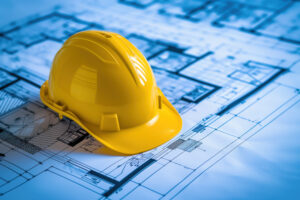Building contractors are the foundation of every building project. They offer a complete variety of unique services that are required for the effective execution of building projects from start to finish. These also serve as project managers, coordinators, and facilitators, ensuring that all aspects of the building process are precisely planned, carried out, and monitored.
These specialists contribute knowledge, experience, and a network of qualified tradesmen to any project, whether residential, commercial, or industrial. In this post, we will look at the many services that construction contractors provide, shedding light on their invaluable contributions to the built environment.
Project Planning & Management
Building contractors are essential to the design and administration of building projects since they provide all-inclusive services that guarantee the project’s successful completion. They work together with clients to comprehend the objectives, schedules, and financial limitations of projects.

Building Contractor overseeing a job
They oversee subcontractors, take care of permits, and deal with any unforeseen difficulties that could come up during building. Contractors aim to achieve client satisfaction and build enduring relationships in the construction sector by offering effective project planning and management services. This optimizes workflow, reduces risks, and ensures project delivery is within budget and timeline.
Cost Estimation & Budgeting
Contractors lend a hand to customers by drawing up detailed budgets. These budgets make sure projects stay within cost limits. They’re good at looking over project details, resources, labor costs, & schedules to give accurate estimates. This service is key decisions at all stages of the project lifecycle. It also helps clients get the funding they need.
Contractors’ experience & knowledge play a big role. They help use resources more efficiently. This cuts down on financial risks. Overall, it boosts project management.
Site Preparation
They serve as a link between project planning and the actual alteration of the landscape. This involves working with surveyors to establish property boundaries and elevations, hiring soil testing specialists to assess foundation needs, and selecting skilled excavation contractors who have the right equipment for the project. The contractor obtains necessary permissions and oversees the safe and efficient removal of any existing structures, vegetation, or unsuitable soil. By efficiently handling these duties, building contractors establish the framework for a seamless transition into the construction phase.
Procurement and Materials Management
They expedite the procedure by procuring supplies, haggling over costs with vendors, and guaranteeing prompt delivery to the location. By satisfying project standards and budgetary limits, efficient procurement guarantees that the necessary materials are of the appropriate quality and quantity. Contractors also handle inventories besides avoiding waste and ensuring that construction schedules are met.
Construction and Building
Contractors begin by deciphering building drawings and making sure local laws are adhered to. They are in charge of construction schedules, overseeing subcontractors, and acquisition of materials. They also ensure employees uphold quality and safety requirements throughout the project. Their thorough monitoring guarantees that projects are completed on schedule, under budget, and in compliance with all legal and regulatory requirements.
Quality Assurance & Compliance
To ensure buildings are safe and solid, contractors always follow the rules set by local authorities They keep a close eye on quality during construction by testing materials and checking workmanship. Plus, they team up with engineers & architects to understand plans perfectly and fix any issues fast. This focus on responsibility, transparency, and constant improvement makes sure every project is top-notch and meets all standards.
Contingency Planning & Risk Management
A few examples of possible roadblocks that you need to consider during the contingency planning phase are the unforeseen site circumstances or material delays. To keep projects on pace and under budget, effective management planning requires effective scheduling, resource allocation, and budgeting. Through the proactive problem-solving and efficient implementation of these practices, contractors improve the resilience and flexibility of their projects, which in turn fosters customer trust and satisfaction.
Project Documentation
Building contractors don’t just build. They make detailed plans, timetables, and specs. These show what materials are needed, what will be done, and how long it’s gonna take. By doing this, contractors cut down on mix-ups & increase clarity. They help everyone communicate better too.
So, in the end, having good documentation means everyone knows what’s going on This makes folks responsible and open about the project. It’s all about making sure the construction projects do well over time.
A building contractor is the cornerstone of every construction project, overseeing the whole undertaking from beginning to end. Their diverse range of services includes everything from design and permitting to material procurement and staff management. Building contractors guarantee that the construction process runs smoothly and successfully by collaborating with customers, subcontractors, and architects, delivering the project on schedule, under budget, and in accordance with safety laws.




